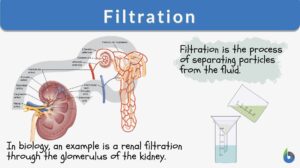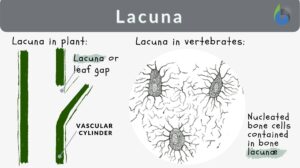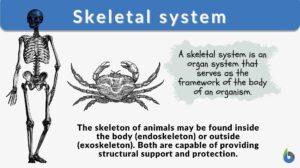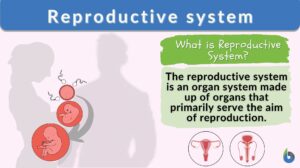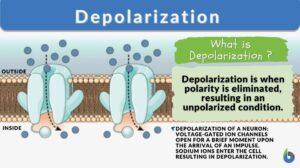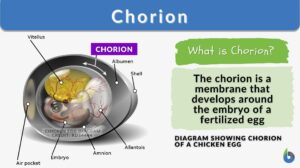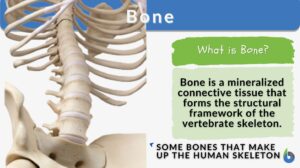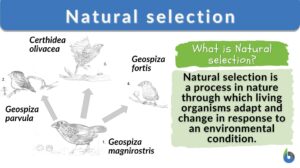Search Results for: passes
Filtration
Filtration Definition What is filtration? Filtration is separating a solid from a fluid through a porous material that... Read More
Antecubital fossa
Antecubital Fossa Definition The antecubital fossa or the cubital fossa is the triangular-shaped hollow depression between... Read More
Hunters ligament
Hunters ligament --> round ligament of uterus a fibromuscular band that is attached to the uterus on either side in front... Read More
Nervous System
THE is the most complicated and highly organized of the various systems which make up the human body. It is the... Read More
Cytopharynx
Definition noun, plural: cytopharynxes or cytopharynges The tube-like passageway in certain protozoans through which the... Read More
Plant Metabolism
Introduction Plants are responsible for incredible feats of molecular transformation. The processes are always being... Read More
Heterochromatin
Definition noun Highly condensed, tightly packed form of chromatin, as opposed to the lightly packed... Read More
Transudation
Definition noun (1) The act, process, or condition of transuding, i.e. the oozing or passing gradually of a liquid possibly... Read More
Skeletal system
What is the Skeletal System? How to define a skeleton? The skeletal system is the main framework that gives your body its... Read More
Basal surface
Definition noun (histology) The edge of the cell or tissue facing the underlying connective tissue (dentistry) The... Read More
Constitutive heterochromatin
Definition noun Regions on chromosomes that are condensed permanently, genetically inactive, and always in the same position... Read More
Light-dependent reaction
Many organisms, such as green plants, convert light energy into chemical energy through the mechanism of photosynthesis. In... Read More
Reproductive system
What is the Reproductive System? The reproductive system of an organism is the biological system made up of all the... Read More
Nitrogen Cycle
The circulation of nitrogen; nitrates from the soil are absorbed by plants which are eaten by animals that die and decay... Read More
Nervous tissue
Nervous Tissue Definition Nerve cells (or neurons) and their associated cells, such as neuroglia cells, make up nervous... Read More
Depolarization
Depolarization is the removal of polarity by a process or action. It might also be used to describe how such activity leads... Read More
Endomembrane system
Ever wondered how biomolecules are made within the cell and then they are released outside the cell for use by the body?... Read More
Facultative heterochromatin
Definition noun Heterochromatin that may lose its condensed state and becomes genetically active Supplement Heterochromatin... Read More
Terminal nerve
Definition noun, plural: vagus nerves A small cranial nerve that courses anteriorly along the olfactory... Read More
Plant Water Regulation
A plant requires water as an essential ingredient of photolysis, the photochemical stage of photosynthesis where water is... Read More
Protein Activity and Cellular Metabolism
Protein Binding Sites The ability of various molecules and ions to bind to specific sites on the protein surface forms the... Read More
Neural Control Mechanisms
Nerve cells called neurons generate electric signals that pass from one end of the cell to another and release chemical... Read More
Circulation
Blood Blood is composed of a liquid, plasma, and blood cells such as erythrocytes (red blood cells,) leukocytes (white... Read More
Respiration
Organization of the Respiratory System Each lung is composed of air sacs called alveoli - the sites of gas exchange with... Read More
Human Reproduction
Terminology and Concepts Primary reproductive organs are called gonads - testes in the male and ovaries in the female.... Read More
Absorbance
Definition noun (analytical chemistry) A logarithmic measure of the amount of light absorbed (at particular wavelength) as... Read More
Asexual reproduction
Asexual Reproduction Definition What is asexual reproduction? Asexual reproduction is a type of reproduction that does not... Read More
Chlorophyll
Why are most plants green? Have you ever had the same question? Perhaps, you’ve been told that the plants are green... Read More
Gorillas in our Midst – what it means
By Vicki Mozo Summary What's up with the gorilla on a basketball court perception test? If you have tried taking this... Read More
Ischial spine
Ischial spine a pointed process from the posterior border of the ischium on a level with the lower border of the acetabulum;... Read More
Natural selection
Natural Selection Definition What is natural selection in biology? Natural selection is defined as a process in nature... Read More
